INDUSTRY REACTION: Base rate raised to 5.25%
Warnings went unheeded by Governor Andrew Bailey and Monetary Policy Committee that another rate rise would risk damaging the UK’s fragile economy.

The Bank of England today raised interest rates by 25 basis points to 5.25% – the 14th month in a row.
Against stark warnings that any rate rise would risk damaging the UK’s fragile economy the Bank’s Monetary Policy Committee headed by Governor Andrew Bailey (pictured) decided 6:3 to push rates higher.
Just this morning critics argued that previous interest rate rises should be given time to take effect on inflation before further action was taken.

Alex Lyle, director of Richmond estate agency Antony Roberts, says: “Yet another interest rate rise, coming on the back of so many and with the potential for more to come, creates further uncertainty for the housing market.
LANDLORD PRESSURE
“The Bank of England has warned that the average increase in monthly repayments on buy-to-let mortgages by the end of 2025 will be around £275.

“This comes as some landlords have already seen their mortgage payments increase by almost 240% since December 2021.
“With landlord profits at their lowest level for 16 years, the vast majority are doing all they can to protect tenants from the impact of growing mortgage rates.
“However, without Government action, renters face a bleak future as growing costs lead to a loss of more rental homes from the market.
“The Government must urgently scrap tax changes which have dampened the supply of much-needed private rented accommodation.
“Likewise, it is also crucial that housing benefit rates are unfrozen so that vulnerable tenants receive assistance during this challenging period for the market.”
UNCERTAINTY
While an immediate rate cut would have created uncertainty and dent the Bank’s credibility many economists called for interest rates to not increase further.
The Institute of Economic Affairs’ Shadow Monetary Policy Committee (SMPC) said this morning that further rate increases could harm the UK economy.

One member, economist Patrick Minford (Cardiff Business School, Cardiff University), said that getting inflation down from very high levels will be a long and slow process; and overreacting and over-tightening could damage the economy and spark a financial crisis.

While another member, Juan Castañeda (Vinson Centre, University of Buckingham), highlighted the contracting money supply over recent months that will have a strong disinflationary pressure.
The SMPC was among the first groups to warn that loose monetary policy during the pandemic necessitated higher interest rates in July 2021.
LOWER INFLATION
Trevor Williams, Chair of the Shadow Monetary Policy Committee and former chief economist at Lloyds Bank, said this morning: “It will take some time for previous rate rises and falling global commodity prices to feed into lower inflation.

“But, in the meantime, further rate rises by the Bank of England are unnecessary and could do some economic damage without lowering inflation any faster.”
By making borrowing more expensive the Bank’s aim is that people will spend less money, meaning households will buy fewer things and then price rises will ease.
The last time interest rates stood at 5.25% was 15 years ago in April 2008 and although the increase will mean higher rates for some with mortgages and loans savings rates will also be given a boost.
INDUSTRY REACTION
James Forrester, Managing Director of Barrows and Forrester, says: “The nation’s borrowers will be forgiven for feeling like they are trapped in some sort of Bank of England Groundhog Day, with rates increasing for the fourteenth consecutive time today.

“The base rate is now the highest seen in over fifteen years and so the latest generation of buyers will no doubt be panicked by the steep cost of borrowing they face in the current market.
We could be nearing the peak.”
“The silver lining is that a lower rate of increase suggests that we could be nearing the peak and while we expect to see lucky number fifteen materialise, they could well plateau before the year is out.”
Marc von Grundherr, Director of Benham and Reeves, says: “A fourteenth consecutive base rate hike will come as yet another nail in the coffin for the nation’s borrowers and will do little to boost a property market that has been treading water in recent months.

“We have seen some positive signs in recent weeks with mortgage approvals climbing.
Higher interest rates are likely to stifle buyers.”
“However, while this boost in market activity is good news, higher interest rates are likely to stifle the purchasing power of the nation’s buyers even more, resulting in the further stagnation of house prices.”
Chris Hodgkinson, Managing Director of House Buyer Bureau, says: “Despite interest rates increasing consistently over such a sustained period of time, the property market is yet to topple.
There is a growing undercurrent of instability.”

“However, while it has remained largely impervious where property values are concerned, there is a growing undercurrent of instability forming beneath the surface.
“This is taking the form of less buyer activity, longer transaction times and, ultimately, a higher chance of transactions collapsing before they reach the finish line.
“So while sales are still completing and for a fair price, sellers can expect a far more turbulent time making it through to completion.”
INVESTOR DEMAND
Andy Sommerville, Director at Search Acumen, says: “The impact of another interest rate rise will force the wider commercial market to assess its growth prospects in the short-term, as the prevailing high cost of debt slows investor demand.

“This drag on spending is putting both the momentum and resilience of the private sector to the test, as the short to mid-term outlook appears as clear as mud.
Those in the long game will see the best returns.”
“However, lower property valuations are likely to facilitate an uptick in opportunistic purchases in both commercial and residential, meaning those in the long game will see the best returns.”
Tom Bill, head of UK residential research at Knight Frank, says: “Tracker rates will rise but the growing popularity of these deals shows there is a belief that the bank rate is near its peak.
It has been a bumpy ride back to normality.”
“It has been a bumpy ride back to normality for interest rates, with the previous government doing too much too quickly and the Bank of England arguably doing too little too late.

“The last 14 years of ultra-low rates will increasingly be seen as the exception rather than the rule.
“Some lenders are cutting rates and as inflation continues to fall, sentiment in the housing market will improve.
“That said, downwards pressure on prices and transaction volumes will continue into next year as more people roll off fixed-rate deals and while the market is not on its knees, demand will remain subdued through to the next election.”
The market position today is actually largely similar to six weeks ago.”
Matt Smith, Mortgage Expert at Rightmove, says: “After a rollercoaster few weeks, the market position today is actually largely similar to six weeks ago, in that today’s rate increase was much anticipated by lenders and has been largely factored in already to mortgage rates, meaning we expect mortgage rates to continue their slow downward trajectory over the next few weeks.

“June’s more positive inflation numbers have given the market renewed confidence that inflation will continue to fall, and the Base Rate won’t have to go as high as previously feared, meaning lenders can tentatively start to reduce rates.
“All eyes are now on July’s inflation figures in a couple of weeks – more positive news could accelerate rate drops, while any surprises would temper the current renewed market optimism.”
It’s not all doom and gloom for the housing market.”
Richard Donnell, Executive Director of Research at Zoopla, says: “It’s not all doom and gloom for the housing market. There are signs that mortgage rates are peaking and 87% of mortgages are on fixed rates.

“For homeowners and would-be buyers who are impacted by mortgage rates, it’s important to note that the impact is not uniform across the UK.
“Higher mortgage rates hit harder in higher value markets in Southern England where a larger deposit and income are required to buy with a mortgage.
“In contrast, in the north of England and Scotland, house prices are still rising as the impact of higher mortgage rates is less pronounced.
“In certain areas in these regions, it’s also still cheaper to buy than rent at 5.5% mortgage rates.”
Many would have hoped for a pause in interest rates rising.”
Brian Murphy, Head of Lending at Mortgage Advice Bureau, says: “After a positive inflation reading last month, many would have hoped for a pause in interest rates rising.

“However, it was not to be the case. The Bank of England has decided that more needs to be done to stamp out the stickiness of inflation in the economy. In doing so, mortgage holders may need to hold out a bit longer.
“Many will be hoping that we are nearing the peak of interest rate hikes.
“Rates on fixed-term products have been dropping marginally in the past few weeks, and there remains hope that they will continue to do so, despite the decision to increase overall rates for a 14th time in a row.”
There is nothing to see here.”
Jonathan Burridge, founding adviser at hybrid mortgage adviser, We Are Money, says: “There is nothing to see here.

“The Monetary Policy Committee has acted as predicted, and predictability is essential for a calm market.
“A calm market means SWAP rates settle and that will mean a drop in fixed rate pricing as we are already starting to see.
“We are not out of the woods yet, and further rate rises may still be on the horizon.
“All eyes are going to be on this month’s inflation figures. We’re not out of the woods, but, perhaps we are starting to make our way in the right direction.”
It’s time for the Bank to press the pause button.”
Mark Harris, chief executive of mortgage broker SPF Private Clients, says: “After 14 rate rises in as many meetings, it’s time for the Bank to press the pause button.
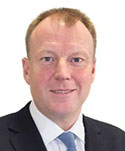
“Give this latest rate rise time to take effect and see how the markets react before deciding whether to continue with these rate increases.
“Consecutive rate rises have been painful; it’s time to let them do their job, rather than causing continued anxiety and distress for borrowers.”
And he adds: “The cumulation of 14 successive rate rises is significant.
“A borrower with a £250,000 mortgage on a tracker pegged at 1 per cent over base rate will have seen their monthly payments rise from £943 in December 2021, when base rate rose from 0.1 per cent to 0.25 per cent, to £1,649 today.”
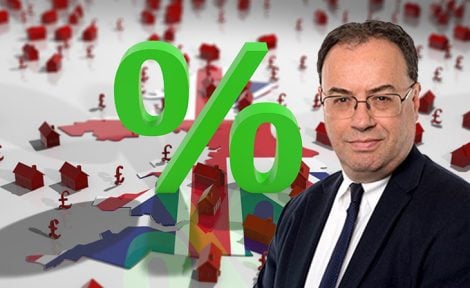


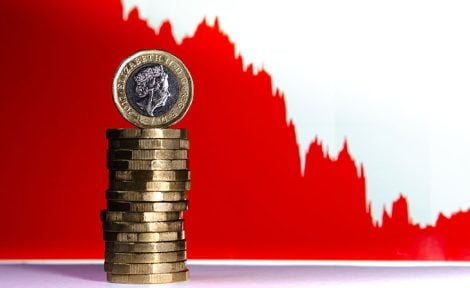
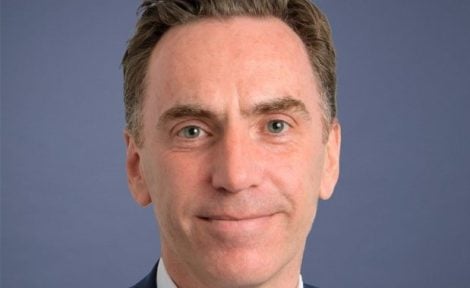
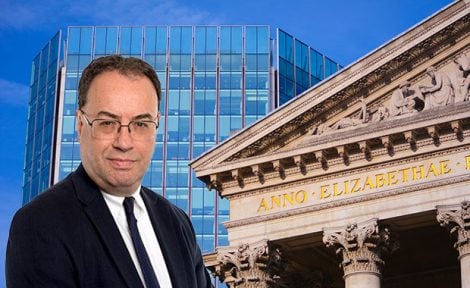
Can someone explain to me, because I must be thick, how raising interest rates will force people to spend less when many are already on the breadline. Luxury goods will still sell to directors of energy companies and accountants specialising in business failures. There will certainly be failures in certain industries reliant on volume such as hospitality and travel. But the root of the problem is surely imported inflation caused by the war, and the effect that had on energy prices. Surely the focus needs to be on reducing energy prices by increasing energy availability, because that and interest rate increases is what is driving increases in business overheads and wage demands. Explain how increasing interest rates isn’t adding fuel to the bonfire. If the objective is to put businesses out of business they’re going there right way about it. But that will lead to less tax being generated and in less competition, so inflation will still carry on under another guise. I really feel for anyone with mortgages. Yes, I remember when interest rates were 15%, but back then the average mortgage size was nothing like today’s. They’re using interest rates like the spray we might use against pink elephants. We know that works, because there are no pink elephants. Problem is, that spray is also the death knell for many industries. They’re making the country poorer but their actions do not address the cause of inflation. Muppets. But maybe I’m the Muppet if you can explain hope this is helping, I’m all ears.
The bank seem too thick to realise that the economy is like an oil tanker with it’s rudder connected to the steering by elastic (fixed rate loans etc) and sooner or later they will get slapped by the rudder and have to make correcting reversals in rates. Your classic hunting.
An unjustified increase which is largely political, I fear.